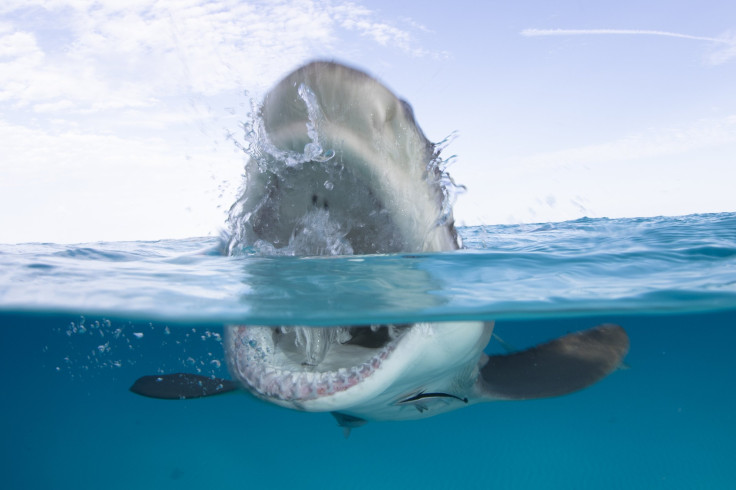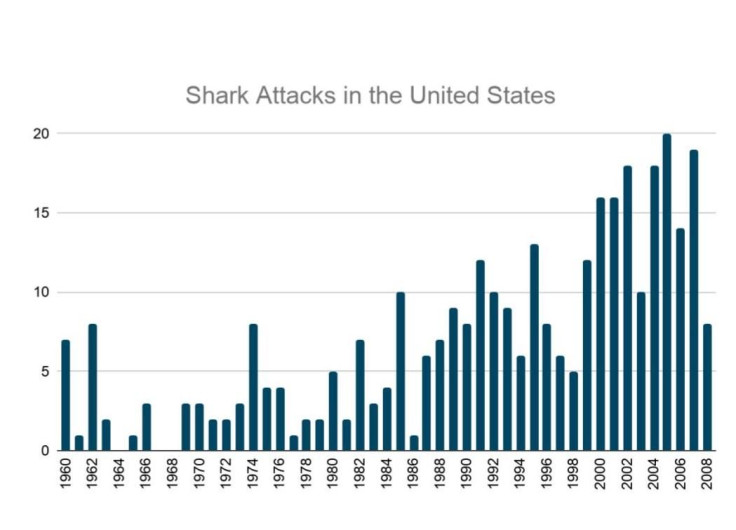This Ocean Predator Can Kick Start a Vaccine: The Shark

Sharks are in the news, but not for their normal shenanigans. They, and their squalene, an oil found in their livers, apparently have a role in the COVID-19 vaccine story.
Squalene is used as an adjuvant in vaccines and chemotherapeutics. An adjuvant revs up the immune system, resulting in a bigger immune response, which means better resistance to the pathogen. Squalene has been used for years in one flu vaccine; a recent count shows this vaccine has been given to 100 million people in 30 countries.
Adjuvants can do more than just up the immune response; a strong immune response can mean that a vaccine, per dose, needs less antigen, and therefore the adjuvant can produce more doses for more people. "Use of an adjuvant can be of particular importance in a pandemic situation because of this potential to boost the immune response and reduce the amount of antigen required per dose, allowing more vaccine doses to be produced and therefore contributing to protect more people," said a spokesperson for GlaxoSmithKline (GSK). It is the antigen that will fight foreign invaders in the body.
The squalene used in the flu vaccines has an "excellent safety record," according to the CDC.
But do we need a bigger boat?
Vaccination is necessary to prevent the spread of diseases, everything from the annual flu, HPV, measles, mumps, rubella, and, with any luck the coronavirus. And according to GSK, the amount of squalene needed for the adjuvant is "a very small proportion of the animal-derived squalene used worldwide – the vast majority of squalene produced is used by other industries including the cosmetic industry."
But the sharks have friends. A campaign to stop using shark squalene was started by the non-profit, Shark Allies. The online petition now has 103,000 signatures. Stefanie Brendl, founder and executive director of Shark Allies, told Medical Daily that she is also reaching out to manufacturers that make alternative sources of squalene.
In October, a team of researchers from the University of Kentucky showed that squalene produced by yeast was just as effective as that made from sharks, and that yeast isn’t the only possible source. Currently, several companies are producing vegetable-derived squalene. In their paper, the authors wrote, “Squalene has historically been harvested from shark liver oil, which is undesirable for a variety of reasons.” The researchers cite the environmental issues, the same ones cited by Shark Allies, as well as the possibility of environmental pollution contaminating the squalene.
But while a switch may be possible, that doesn't mean it is feasible. "Today, there is no suitable alternative option for squalene available – the research into suitable alternatives is on-going and will not result in other options within the timeframe of the COVID-19 pandemic," explained the GSK spokesperson.
GSK is not making a COVID-19 vaccine, but it is developing an adjuvant that will be used in several potential vaccines. "We have confirmed our intention to manufacture 1 billion doses of our pandemic vaccine adjuvant system, in 2021, to support the development of multiple adjuvant COVID-19 vaccine candidates," said a spokesperson.
Many of the sharks used for processing into squalene are so-called bycatch. According to the National Oceanic and Atmospheric Administration, these animals are unintentionally caught. GSK says that many of the sharks that eventually make their way into pharmaceuticals are not hunted down for their livers, but accidentally caught.
Harming sharks vs helping man
Ms. Brendl believes sustainable squalene is not possible. Sharks not a renewable resource, and she believes that they are not ethical sources of squalene. “The people that buy it, I doubt very much that they even know where the sharks come from that are in their squalene, because sharks and shark oil and squalene get traded all around the globe,” she said.
Saving sharks could be an uphill battle. Sharks aren't exactly as popular as puppies. According to a 2019 survey from Chapman University, 32.3% of people were afraid of sharks. It is worth noting that sharks do not hunt people.
But when the two species meet, it's catastrophic.
The number of attacks have risen.

More people are in the water, drawn to sports like surfing and spearfishing. But the fall and rise of a favorite shark food, namely the seals, has brought man, shark and seal into the same neck of the woods, as it were. Seals were a favorite hunting target of man, so by the middle of the 20th century, and killed to the point of extinction, but the population has made a comeback. And the sharks followed.
So while sharks do pose a threat to humans, losing them to hunting would impact oceans and their denizens. Oceana, an ocean advocacy group, considers sharks apex predators. This means that they eat a wide range of middle-of-the-food-pyramid animals. Their lofty position and eating habits do three things. It:
- Keeps the prey population healthy, as sharks eat sick or old animals
- Stops overgrazing by prey fish on kelp and coral reefs
- Maintains a good balance in the ecosystem
According to researchers, 19% of the world's coral reefs are missing sharks. Sharks are hunted for their skin, meat, fins, and organs.
Said Ms. Brendl: “I'm hoping that this vaccine and the squalene campaigns, in general, bring to people's awareness that any part of a wild animal that is endangered, any part that is used will increase their value and will increase the reason why they're being hunted.”
Sabrina Emms is a science journalist who has worked as a researcher, looking at the way bones are formed.
Christine Bahls contributed additional reporting.



























